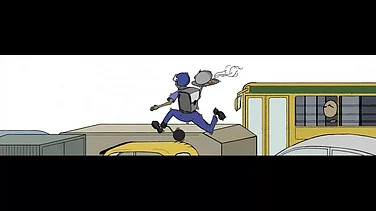As humans, living through everyday stresses, as well as deeper life struggles, can have a degenerative effect on our minds, bodies and spirits. This degeneration appears in myriad forms – as maladies of the body, as emotional upheaval and as spiritual unrest. Nature, on the other hand, is innately regenerative. So, it is no surprise that things that are intricately linked to nature and creation seem to have a profoundly healing effect, like a beautiful sunrise or a cool breeze, and of course, music!
In my years of singing, performing and teaching Indian classical music, as well as living though my own share of life upheavals, I’ve come to witness some rather amazing effects that it has had on people. For instance, a chain smoker successfully left behind years of smoking within a few months of commencing learning Indian classical music. Another instance is that of a grandmother who was accompanying a child to her Indian classical music lessons, found herself freed from the grip of a nagging pain that had plagued her the previous few hours.
Advertisement
The effects of Indian classical music are not limited to those initiated into it. For instance, I witnessed a bystander at a concert who left abruptly, erupting into tears as she found herself overcome by the powerful emotions that a raaga evoked in her. She came back feeling happy and uplifted.
Indian classical music owes its origins to the primordial sounds of the Vedas and to the organic sounds of nature. From these were born the seven basic notes of classical music, which later evolved into the “raaga” system that we know today. Apart from being profoundly emotive and pleasing, Indian classical music has one hidden quality which is only now beginning to be explored scientifically --- its ability to heal.
Advertisement
While arguably, any music that pleases the heart has potential to heal, Indian classical music is unique. Because of its organic roots, the alignment of the raagas with the time of day, and its association with a gamut of emotions or “rasas”, Indian classical music sets the stage for spiritual and physical healing.
Our indigenous spiritual wisdom speaks of the multi-dimensional nature of our being, the body being the outermost gross manifestation of existence, the layers of the mind being at a subtler level, and the sprit constituting the most subtle plane.
Truly durable wellness and health, therefore, can spring only a holistic pursuit across these planes of existence.
The mind and music
My years of interactions with students and audiences, has shown me that a key mechanism through which Indian classical music heals is through establishing a connect with a person’s emotional being. Indian Raagas connect with a person’s emotions through two processes - identification and transformation.
Identification happens, for example, when a person in a sombre or sad mood, hears a raag that brings out the sadness through its flat, or ‘komal’ notes, like Raag Lalit or Raag Bhairav. In that case, the emotions are identifying with something powerful outside of the person, and therefore find release through a cathartic crying or welling up.
Advertisement
Transformation happens when the mood of a raaga influences the listener’s emotional state. For instance, listening to a “happy” raag, like Bhoop or Bilawal, may transform his or her mood from sad to happy, because of the major notes and the upbeat moods these raagas create. Since emotional states greatly determine mental health and wellness, Indian classical music has enormous potential to create a state of mental wellbeing in a person.
The body and music
Scientific research has shown that a person’s mind significantly influences physical health and the ability to contract or fight disease. So, anything that impacts the mind will have a deep impact on the body as well.
Advertisement
While the influence of music on mental states indirectly causes a positive effect on the body, it is also becoming increasingly evident that engaging in music has direct impact on physiology. For example, singing can improve breathing and lung function. Playing instruments strengthens the motor functions of the brain, and rhythm helps organize our thoughts and actions better.
Academic researchers, such as Joyanta Sarkar and Utpal Biswas, have dwelt on the efficacy of using Indian raagas for many kinds of treatments. There is potential to use raagas as supportive therapy in ailments ranging from dementia, Alzheimer's and ADHD, to metabolic diseases like diabetes and hyper-tension, and psychological conditions such as depression and anxiety. Apart from being non-invasive and low-cost, the healing process is also pleasing and beautiful.
Advertisement
The spirit and music
Indian classical music, due to its organic origins, has potential to bring us closer to our inner being. Besides mood transforming powers, Indian classical music has powerful effects on a person’s ability to be mindful, as it make us more emotionally aware. Sur Riyaaz (pursuit of perfect key), playing an instrument, trying to sing raagas or even listening to the drone of the taanpura, allows us to easily slip into meditative states. All these aspects of engaging with Indian classical music powerfully aid healing processes to kick in.
While the manner of engaging with Indian classical music can be varied, there is always undoubtedly a profound impact, resulting in a better emotional, mental and physical state.
Advertisement
It is time we tapped into this vast resource to heal our bodies, cleanse our minds and uplift our spirits. Because when we engage with Indian classical music, we are undertaking a journey deep into our inner selves, back to the building blocks of creation where all the answers to our problems lie hidden, waiting to be discovered.
(The author is a duo Carnatic and Hindustani Indian classical vocalist with over 30 years of training and experience. Views expressed are personal, and don’t necessarily reflect that of Outlook magazine.)




















